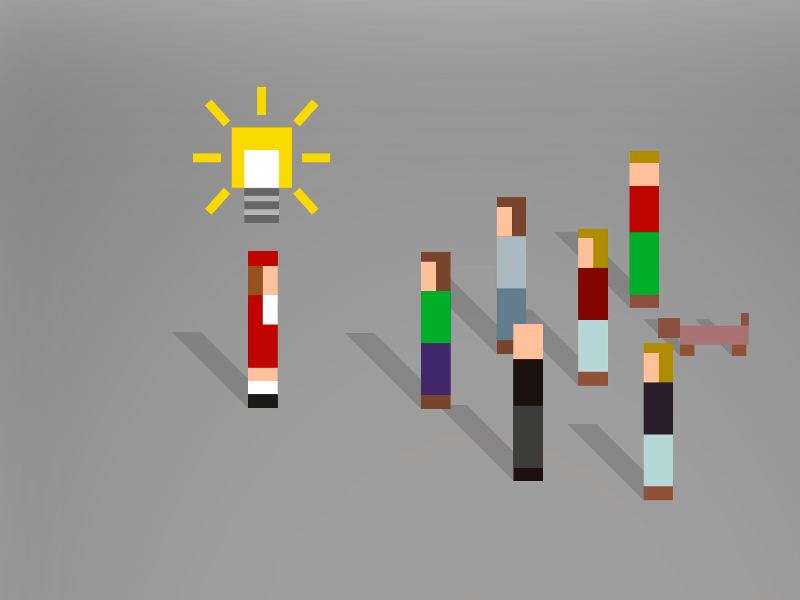Language is one of the most commonly used mediums to express one’s thoughts. However, as we discovered in our earlier blogs (please read ‘Part 2’ to know more about it), how the meaning of a word changes when we look at the words from the perspective of mental actions or cognitive processes. In this blog, we will expand the scope of such words to include a set of new words.
We all have heard words like ‘Problem’, ‘Options’, etc., so often that we have stopped questioning what these words mean? Do they mean the same thing for everybody? Do we have a standard definition, which is the same for everyone? How do we impart the cognitive process or mental action associated with these words to our children?

To resolve the issue associated with an experiential understanding of these words, we have created a list of such words whose meanings you can deliver through Konshius’ games to your children. And, we call this list Thinkabulary®. Ever heard about it? Well, you guessed it right! We coined this word at Konshius.
In simple words, Thinkabulary words are those which do not have a definite meaning. For example, while words such as ‘pen’ will always refer to a concrete entity, i.e. an instrument for writing or drawing with ink (Ref; Oxford definition), there exist words like ‘Pattern’, ‘Possibility’ that have more depth and have meanings beyond what the words can convey. So simply put, these words are conceptual in nature. Thus, the meanings and explanations of such words vary from person to person. Don’t believe us? You can test it. You will hear many different versions as each person perceives these words differently. Why? Because of the different contexts in which each one of us learned the usage of these words. Thus, it becomes essential that we create the proper context for our children to understand the meanings of such words holistically.

I will start with two conceptual words to build upon this topic gently, ‘Possibility’ and ‘Options’. In the day-to-day usage of language, ‘Possibilities’ & ‘Options’ are often used interchangeably. But is that the correct way to perceive them? Even though we might have been using them as synonyms in our daily conversations and interactions, possibilities and options are not synonyms in the cognitive world of experiences. The ability to identify different ways/outcomes is called ‘Possibility’. And, they are always based on a context, environment or situation. After exercising the ability to identify possibilities, what comes out is called ‘Options’.
So, in our real life, when we straightaway give options to our children, without helping them first identify possibilities (i.e. the process of generating options in the environment), we are unknowingly making the children skip a process of learning – A process of ‘how to understand an environment and ‘how to identify possibilities in that environment.
This is a concept loop that needs to be delivered to the children effectively. Why?
Because the way one looks at the environment creates possibilities; these possibilities then become options; the availability of options makes us choose what we choose; what we choose becomes opportunities, and these opportunities then translate to success. What if we say that you can deliver all of this through Konshius game-based learning? That you can make your child learn this concept loop as an experience, rather than just a phrase to remember?
To do this for you, we have created a ‘Thinkabulary Card’ specifically for each of our games. And, in these cards, we have shared a few words whose experiential meanings can be delivered in the context of that particular game. You can use the game-playing experiences to impart these words to your child. We request you not to see these words from the dictionary perspective but as a concept whose meaning you can deliver through the experience of playing the game.
In my earlier blog, I have written about Bloom’s Revised Taxonomy. For those unfamiliar with it, this is one such taxonomy followed by schools and colleges across the globe for defining and mapping the learning outcomes. I have shared a few things there to open a new perspective on this taxonomy. So do take time to read it to dive deeper into questions like how do children learn? How can we equip our children for those unknown situations where there is no scope to fall back upon the past memorised content? Etc.
I welcome you all to stay connected and bookmark this page so that you are the first ones to read when we post new updates here.

